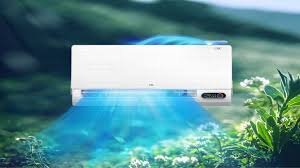Although air conditioners (AC) are necessary for cooling buildings, including homes and businesses, they can be hazardous to the environment and human health due to the chemicals they contain. These dangerous substances are mostly present in cleaning products, refrigerants, and building materials for air conditioning equipment, and thus are best handled by a professional like https://www.airconservicing.org/pricing/. Let’s examine the most frequent dangerous substances connected to air conditioning systems and the threats they may provide.
Refrigerants:
Chemical substances called refrigerants enable air conditioning (AC) systems to take in and release heat, enabling cooling. But some refrigerants, particularly those that leak or are handled incorrectly, can be dangerous to the environment and public health.
- CFCs, Or Chlorofluorocarbons:
The ozone layer’s detrimental effects have led to the widespread phase-out of CFC use, which was once commonplace as a refrigerant in older air conditioning units. CFCs degrade ozone molecules, which shield the planet from dangerous UV radiation, when they are discharged into the atmosphere. Even though CFCs are no longer produced, they might still be present in older systems, therefore it’s important to dispose of them properly.
- HCFCs, or Hydrochlorofluorocarbons:
HCFCs were introduced as a less harmful substitute for CFCs, such as R-22. Even though HCFCs are less damaging to the ozone layer, they are nonetheless considered greenhouse gases and contribute to ozone depletion. Although HCFCs are no longer being produced or imported globally, many outdated air conditioners can still contain them.
- HFCs, or Hydrofluorocarbons:
These days, modern air conditioning systems only use HFCs like R-134a and R-410A, rather than CFCs and HCFCs. HFCs have a large potential for global warming even though they don’t destroy the ozone layer (GWP). Accordingly, when HFCs are discharged into the environment, they become strong greenhouse gases that greatly accelerate climate change. There are initiatives to decrease the usage of HFCs by developing alternative refrigerants with a lower greenhouse gas footprint and enforcing laws.
FOR INFORMATIVE CONTENT VISIT.. : Christmas gifts
Chemicals That Are Volatile (VOCs):
Volatile organic compounds (VOCs) are released into the atmosphere by a variety of AC system components, such as the refrigerant, insulation, and maintenance-grade cleaning agents. High VOC exposure can cause a variety of health issues, such as headaches, respiratory irritation, and in rare situations, long-term consequences like liver or kidney damage.
- Benzene:
A volatile organic compound (VOC) that can leak from some AC system parts is benzene. Long-term benzene exposure has been linked to major health problems, such as leukemia and cancer. Long-term exposure to benzene can nevertheless be harmful to health, even though the amounts produced from air conditioning systems are normally rather modest.
- Formaldehyde:
Another VOC that may be found in AC systems is formaldehyde, which is often found in adhesives or insulating materials that were used in the unit’s construction. Formaldehyde fumes can irritate the respiratory tract, trigger allergic reactions, and eventually accelerate the growth of some tumors.
Chemicals for Cleaning:
Chemicals that can be dangerous if not handled correctly are frequently used in the maintenance and cleaning of air conditioning units. Health concerns could arise from breathing in or absorbing some of these substances through the skin. Hire https://www.airconservicing.org/ for Ac maintenance tasks as they are well equipped and knowledgeable at handling these substances.
- Ammonia And Bleach:
Common cleaning solutions used to sanitize AC coils and other system components include bleach and ammonia. The fumes from these compounds can cause irritation to the skin, eyes, and respiratory system when utilized in small areas. Furthermore, bleach and ammonia when combined yield deadly chlorine gas, which in high amounts can be fatal.
- Acidic Cleaners:
Strong acids like phosphoric or hydrochloric acid are used in certain coil cleaners utilized in AC servicing. If these substances are handled without the appropriate safety equipment, burns to the skin and eyes may result. Furthermore, breathing in acidic vapors might harm the lungs and respiratory system.



